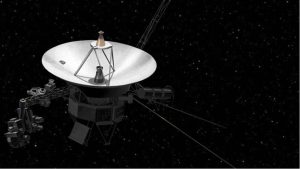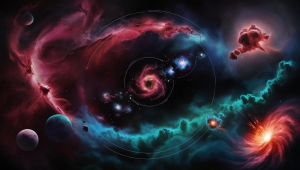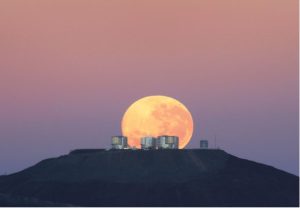
WORMHOLES:COSMIC SHORTCUTS
What if you could rocket from Earth, not to the Moon or Mars, but down a wormhole that loops all the way across the vast Milky Way, slashing travel time
Over the last few years the exploration of interstellar objects (ISOs) like ‘Oumuamua and Borisov has actually stimulated substantial passion in the astronomical neighborhood. These mystical site visitors, coming from past our planetary system, supply a distinct possibility to broaden our understanding of deep space and also the vibrant procedures that regulate it. By researching these interstellar pedestrians, we get understanding not just right into their origin but also the development of our very own planetary system.
The Enigmatic ‘Oumuamua
The initial recognized interstellar item to go through our planetary system, ‘Oumuamua was found on October 19 2017 by astronomers using the Pan-STARRS1 telescope in Hawaii. The name ‘Oumuamua, meaning “scout” or “messenger” in Hawaiian reflects its status as a messenger from another star system. Unlike anything seen prior to, ‘Oumuamua displayed an extremely lengthened form, with quotes recommending maybe approximately 800 meters long but just about 80 meters broad.
Among one of the most remarkable elements of ‘Oumuamua is it’s uncommon activity. As it travelled through our planetary system it sped up in a manner in which might not be completely described by gravitational pressures alone. This brought about conjecture concerning the nature of the item. Some concepts recommended that maybe a comet, with outgassing creating the observed velocity. Nevertheless, no noticeable indications of a cometary tail or gas discharges were found. This has actually caused alternate concepts consisting of the opportunity that ‘Oumuamua might be a portion of a bigger item, an item of interstellar particles, or perhaps a fabricated things sent out by an innovative world.
Although ‘Oumuamua has actually given that left our solar system, leaving numerous concerns unanswered, its quick browse through has actually stimulated substantial passion in the research of interstellar objects. It highlighted the demand for better discovery and also monitoring strategies to research such things in even more information needed to go through our planetary system once more.
Borisov: A More Familiar Visitor
2 years after the exploration of ‘Oumuamua, an additional interstellar site visitor Borisov was found. Found by amateur astronomer Gennadiy Borisov on August 30 2019 this item was more traditional in look than ‘Oumuamua. Borisov was promptly determined as a comet because of its particular coma (a cloud of gas plus dirt) and also tail, attributes that were significantly missing in ‘Oumuamua.
Borisov’s trajectory validated its interstellar beginning, and also it was quickly identified as the 2nd recognized interstellar thing to see our photovoltaic system. Unlike ‘Oumuamua Borisov acted much more like the comets that come from within our solar system, with outgassing as well as a well-defined coma. This made it much easier for astronomers to research and also contrast it with various other well-known comets, offering an important referral factor for recognizing the distinctions and also resemblances in between solar system comets as well as those from interstellar space.
Borisov’s make-up as assessed by numerous telescopes exposed that it had a greater focus of carbon monoxide gas than common planetary system comets. This search recommends that Borisov might have been created in a chillier, much more far-off area of its house planetary system offering hints about the variety of settings in which comets can develop.
Implications for Understanding Our Solar System
The explorations of ‘Oumuamua coupled with Borisov have extensive effects for our understanding of the planetary system as well as the more comprehensive world. These things are basically time pills that bring info from remote stars that we would certainly or else be not able to gain access to.
Examining interstellar things enables researchers to check concepts concerning the development along with development of worldly systems. As an example the uncommon attributes of ‘Oumuamua difficulty existing designs of exactly how objects are eliminated from their moms and dad celebrity systems as well as exactly how they could act as they take a trip with interstellar room. In a similar way Borisov’s even more acquainted comet-like habits supplies a relative structure for recognizing exactly how various settings affect the development and also advancement of comets.
These interstellar site visitors likewise increase vital inquiries concerning the regularity of such things going through our planetary system. If ‘Oumuamua collectively Borisov are depictive of a bigger populace of interstellar things there might be a lot more such site visitors, with some possibly bringing natural substances and even prebiotic products. This opportunity has substantial effects for the research of panspermia, the theory that life can be dispersed throughout deep space by means of comets and also asteroids.
The Future of Interstellar Object Exploration
The expedition of interstellar things is still in its early stage however it holds a terrific guarantee for the future of astronomy. With breakthroughs in discovery of modern technology such as the upcoming Vera C. Rubin Observatory, we might quickly have the ability to discover even more interstellar things with higher regularity together with information. These explorations might bring about a much deeper understanding of the procedures that form worldly systems throughout the galaxy as well as maybe also respond to essential inquiries about the beginnings of life.
Finally, the research of interstellar things like ‘Oumuamua along with Borisov supplies an interesting glance right into the unidentified areas of our galaxy. These planetary carriers not just offer ideas about the remote celebrity systems they originate from but likewise aid us fine-tune our understanding of the planetary system along with its area in deep space. As we remain to discover these mystical site visitors, we can look forward to finding brand-new understandings that might modify our understanding of the universes.

What if you could rocket from Earth, not to the Moon or Mars, but down a wormhole that loops all the way across the vast Milky Way, slashing travel time

If you go outdoors on a clear evening and also search for it, you might have the ability to see Jupiter beaming brilliantly amongst the celebrities. At the exact same

Stars, the dazzling points of light that fill up the evening skies are the foundation of galaxies plus the cradles of life itself. From their birth in large clouds of

In the mission to recognize deep space mankind has actually developed progressively effective devices to observe deep space. Completion of this venture is the Extremely Large Telescope (ELT) which is

Space debris, also known as space junk, refers to the defunct artificial objects orbiting Earth. These objects include decommissioned satellites, spent rocket stages, and fragments from collisions and explosions.

The search for exoplanets– planets that orbit stars outside our planetary system– has actually quickly developed into one of the most interesting and dynamic fields of astronomy
Write to
Jasmine Gogoi at csr@scientifictemperament.com
Let’s develop our society with a scientific heart. Join us to build the scientifically nurtured future →